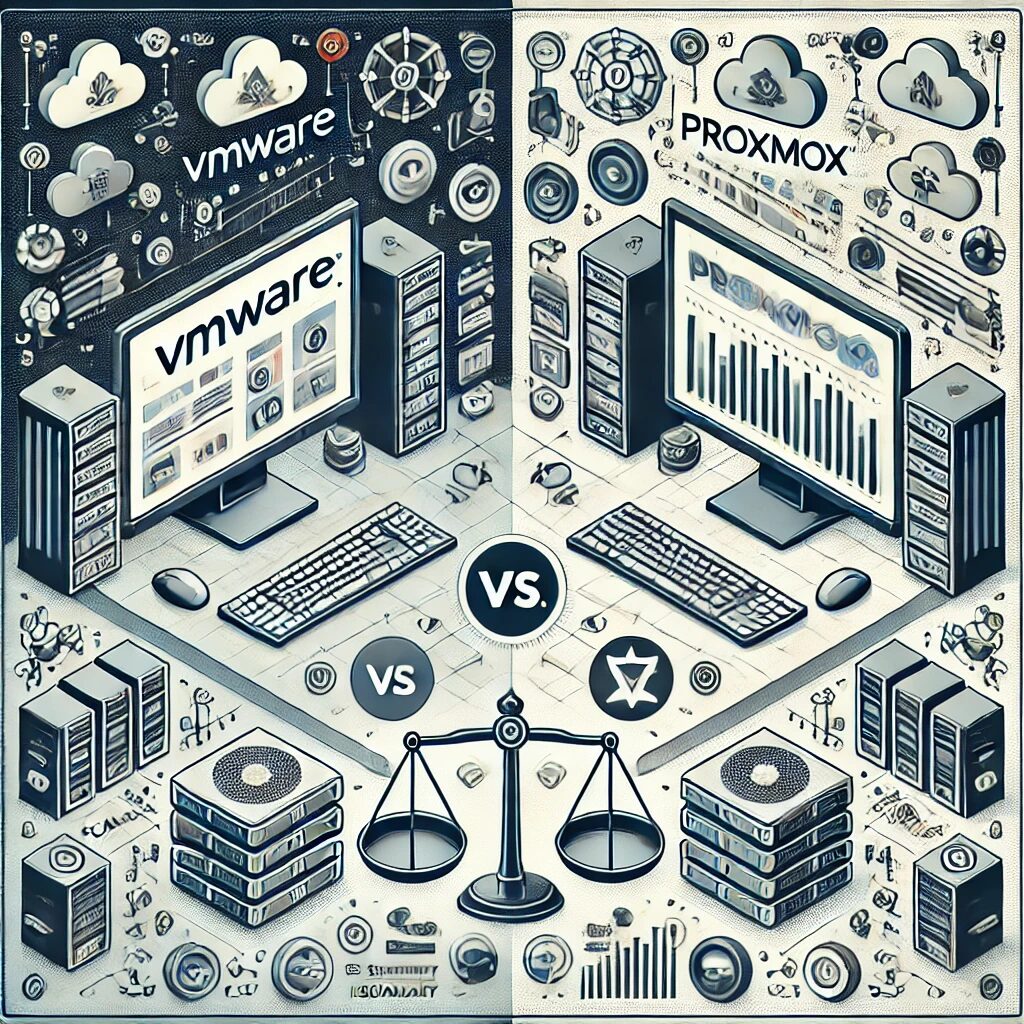VMware
Pros:
- Established industry leader
- Comprehensive virtualization features
- High availability and fault tolerance
- Extensive management tools (vSphere)
- Strong support and documentation
Cons:
- Costly licensing, especially for advanced features
- Hardware compatibility limitations
- Complex setup and configuration
- Resource-intensive compared to some alternatives
Proxmox
Pros:
- Open-source and free to use
- Integrated virtualization and container support (KVM, LXC)
- Web-based management interface (Proxmox VE)
- Supports clustering and high availability
- Flexible and customizable
Cons:
- Less enterprise support compared to VMware
- Learning curve for users unfamiliar with Linux and virtualization
- Updates and new features may be less frequent than proprietary solutions
- Community support variability
Conclusion
In conclusion, choosing between VMware and Proxmox depends largely on your specific needs, budget, and technical expertise. VMware offers robust features and support suitable for enterprise environments but comes with a higher cost and complexity. Proxmox, being open-source, is more accessible for small to medium-sized businesses or those on a budget, providing flexibility and integration with virtualization and containers.
Both platforms have their strengths and weaknesses, making it essential to evaluate your requirements thoroughly before making a decision.




